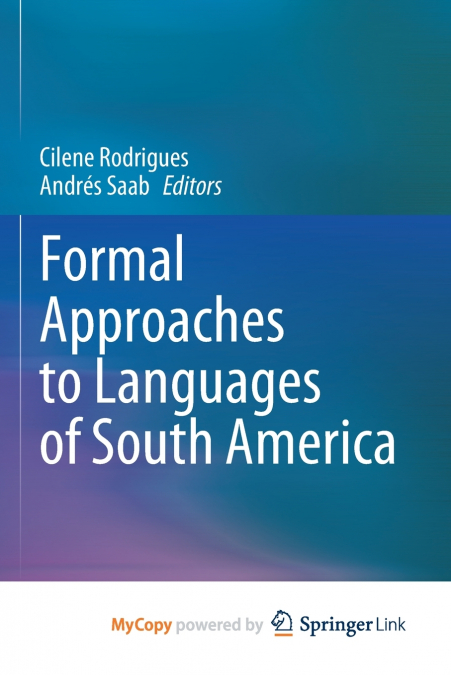
This book analyzes the linguistic diversity of South America based on approaches deeply rooted in the tradition of formal grammar. The chapters brought together in this contributed volume consider native languages all kinds of languages used in the region, including sign languages, indigenous languages and the romance languages (Portuguese and Spanish) originally introduced by European colonizers which underwent processes of transformation giving rise to new, local grammars. One fourth of the language families of the world are located in South America, but the majority of languages in the region are still understudied and out of the radar of theoretical linguistics mostly because their grammars are not well-known by international researchers. This book aims to fill this gap by bringing together studies rooted in the formal grammar approach first developed by Noam Chomsky, which sees language not only as mere corpora attested in oral and written production, but also asexpressions of systems of thought and language production which are essential parts of human cognition. The book is divided in three parts - sign languages, romance languages and indigenous languages -, and brings together studies of the following South American languages: Brazilian Sign Language (Libras - Língua Brasileira de Sinais)Argentinian Sign Language (LSA - Lengua de Señas Argentina)Peruvian Sign Language (LSP- Lengua de Señas Peruana)Brazilian PortugueseChilean and Argentinian SpanishQuechuaParaguayan GuaraniA’ingaeMacro-Jê languagesFormal Approaches to the Languages of South America will be an invaluable resource both for theoretical linguists and cognitive scientists by providing access to top quality research on understudied languages and enabling these languages to be incorporated into comparative studies that can contribute to advance the knowledge of general principles governing all human languages.